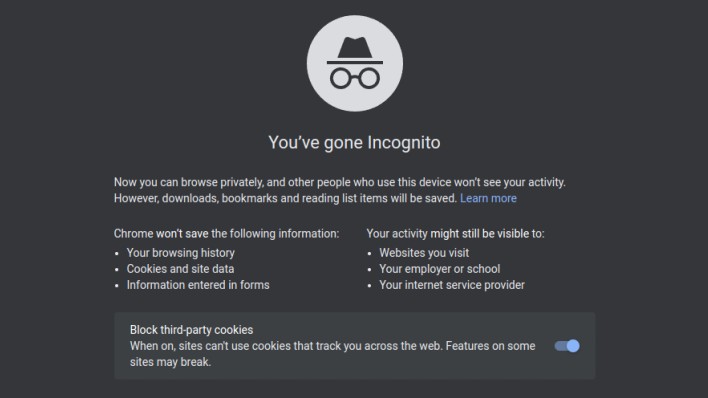Privacy Lawsuit Exposes Google Employees Cracking Jokes About Chrome's Incognito Mode
For most of its lifetime, Chrome’s Incognito mode simply opened a fresh browser window with no cookies or history, then deleted any cookies or history accumulated during use once the window was closed. More recently, Google added the further capability of blocking third-party cookies, which could be utilized to track users across different websites. However, even with this additional feature, Incognito mode is far from a truly private or anonymous browsing mode. Nonetheless, users can be forgiven for thinking that Incognito mode is exactly that.
One Google Chrome engineer, speaking with some fellow Chrome engineers in 2018, wrote, “We need to stop calling it Incognito and stop using a Spy Guy icon.” Another engineer responded to this message by linking to a wiki page for a character from the TV show The Simpsons named “Guy Incognito.” This character is played off as a gag, appearing as a poorly disguised Homer Simpson, the show’s main character. Guy looks almost exactly the same as Homer Simpson, excepting a small mustache, a suit, and hat. After linking to this character’s wiki page, the engineer joked, “Regardless of the name, the Incognito icon should always have been Guy Incognito. Which also accurately conveys the level of privacy it provides.”

While the disclaimer that appears when you first enter Incognito mode explains that websites, employers, and internet service providers (ISPs) may still be able to track users’ browsing activity, the disclaimer doesn’t say anything about what information Google may collect on Incognito mode users. The lawsuit against Google highlights a somewhat bold internal proposal submitted by a Google Chrome product lead suggesting that the company change the Incognito mode disclaimer to read “You are NOT protected from Google.” Unsurprisingly, this proposal was rejected by Google’s executives.
Given a chance to respond to the claims put forward in the lawsuit, a spokesman for Google, José Castañeda, told Reuters the following: “Incognito mode offers users a private browsing experience, and we’ve been clear about how it works and what it does, whereas the plaintiffs in this case have purposely mischaracterized our statements. Privacy controls have long been built into our services and we encourage our teams to constantly discuss or consider ideas to improve them.”

